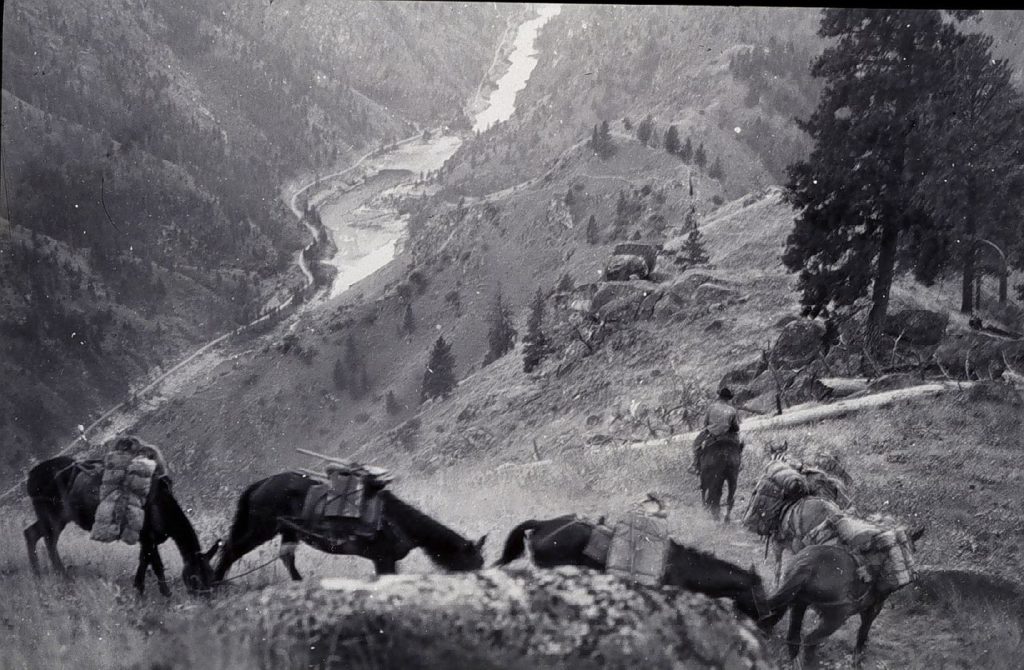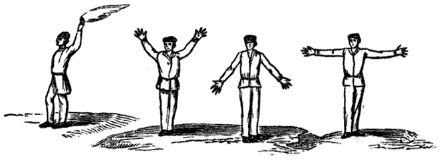
In this last installment about “mountain travel” from “Mountain Scouting, A Hand-Book for Officers and Soldiers on the Frontiers” by Edward S. Farrow, U.S. Army, 1881, Farrow points out the usefulness of signals in communicating over long distances. I’m used to being able to pick up my phone and sending a text or email, but without that convenience, having a system of signals worked out surely would have been a great advantage. Although technology is ever present (how else would I be writing this entry), I’m jealous of a lifestyle where society wasn’t as “connected” – where the use of signals etc. was even a consideration. It’s also a reminder of how things have changed to hear Farrow mention “savages” and that he believed them to have a “superstitious nature.” Also, I’m pretty sure it wouldn’t be as easy to pick up a dog to relay your messages these days.
Mountain travel: signals
Before sending out scouts or detachments, certain elementary signals should be agreed upon. For instance, let a wave with one hand designate ‘hurry,’ ‘come on,’ etc.— let both arms raised designate ‘yes,’ ‘all right,’ etc.— let both arms lowered designate ‘no,’ ‘wrong,’ etc.—and let both arms extended latterly and horizontally designate ‘halt,’ ‘go back,’ etc. Such a precaution will frequently do away with the necessity of messengers making difficult and dangerous journeys. A distant scout might signal by walking or riding from right to left or from left to right, etc.

During the “Sheep Eater” Indian campaign in the Salmon river mountains, in 1879, Colonel Bernard, of the cavalry, came to the conclusion that signal rockets were invaluable in such a country, where the commands were of necessity separated by rocky and almost impassable ridges, and urgently recommended their use. The idea is an excellent one; for, besides their value as signals, they terrify the savages and produce a wholesome effect upon their superstitious natures. I believe a few rockets, kept for emergencies and judiciously sent up, might frequently avert the intended attacks or stampedes of Indians.
I have found, by experiment, that it is a splendid plan, when going into the mountains, or over very rough trails, and there is a probability of messengers being needed, to collect a few dogs on leaving the last settlement. They may be picked up or purchased for almost nothing, and the guard may lead them along with the command without any great trouble. Whenever it is necessary to send back a message, advantage may be taken of the dog’s restlessness. Having made the message fast to his neck, let him go with a kick; it will be but a short time before he finds his way back to the settlement, having served as messenger.